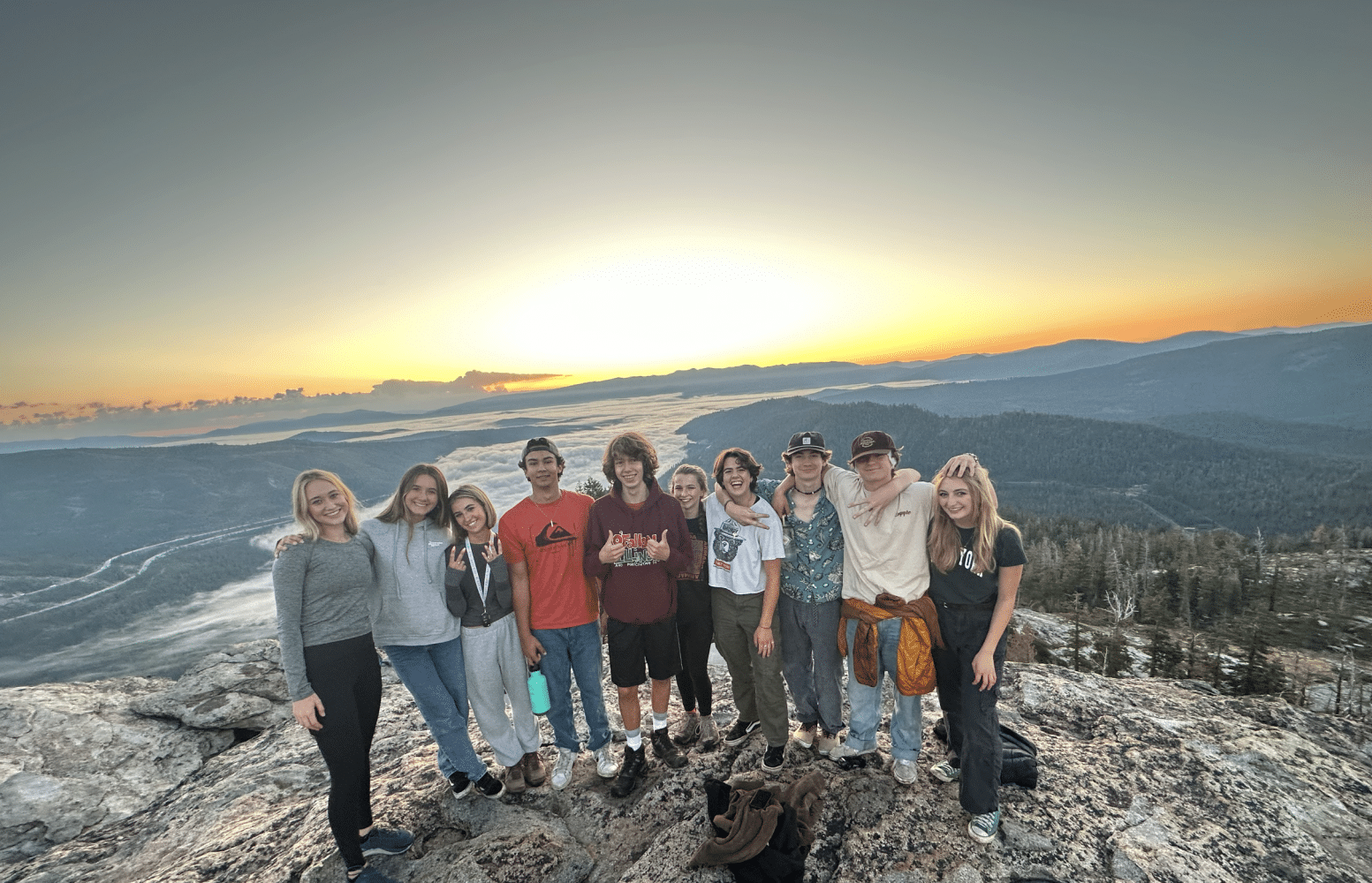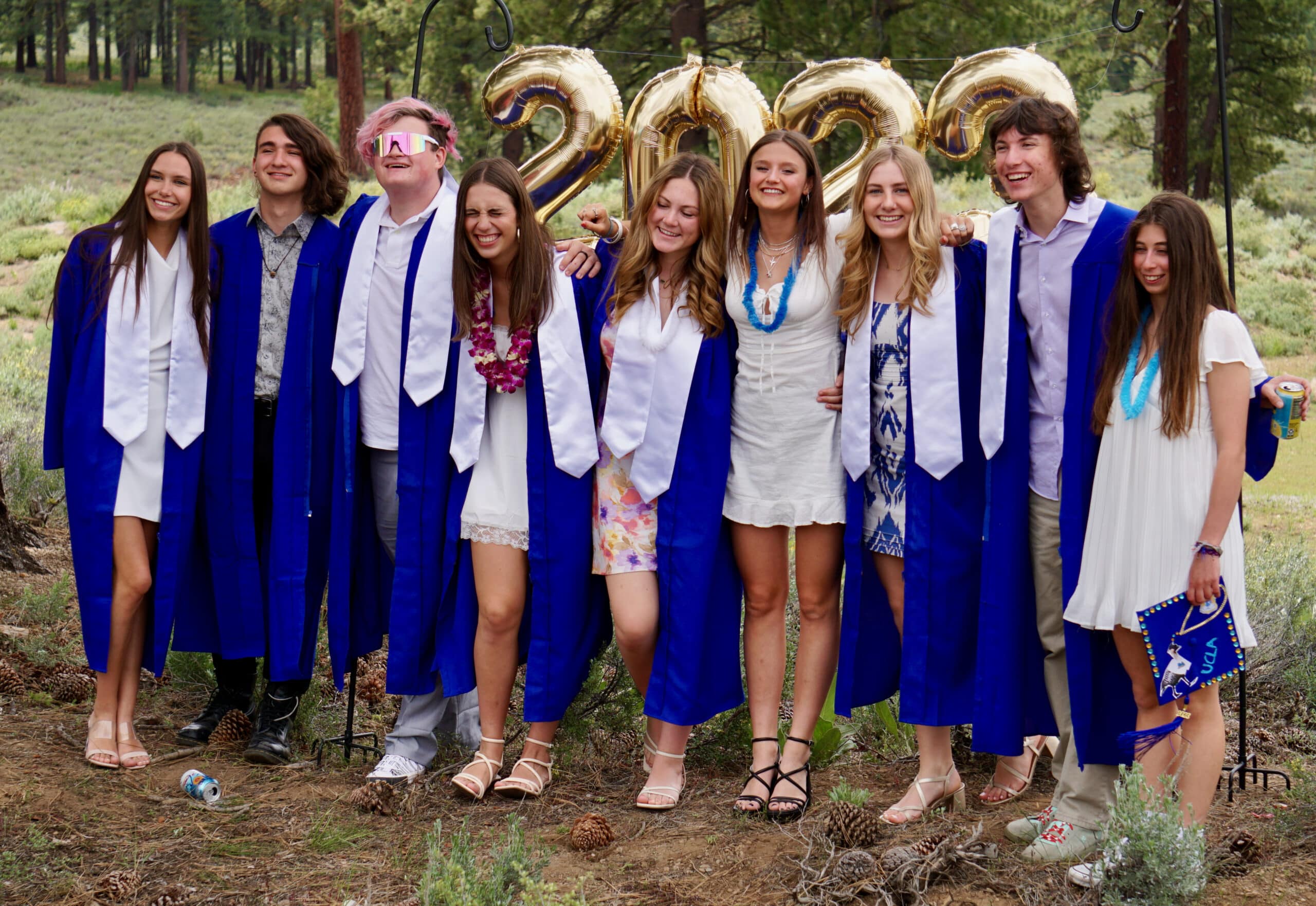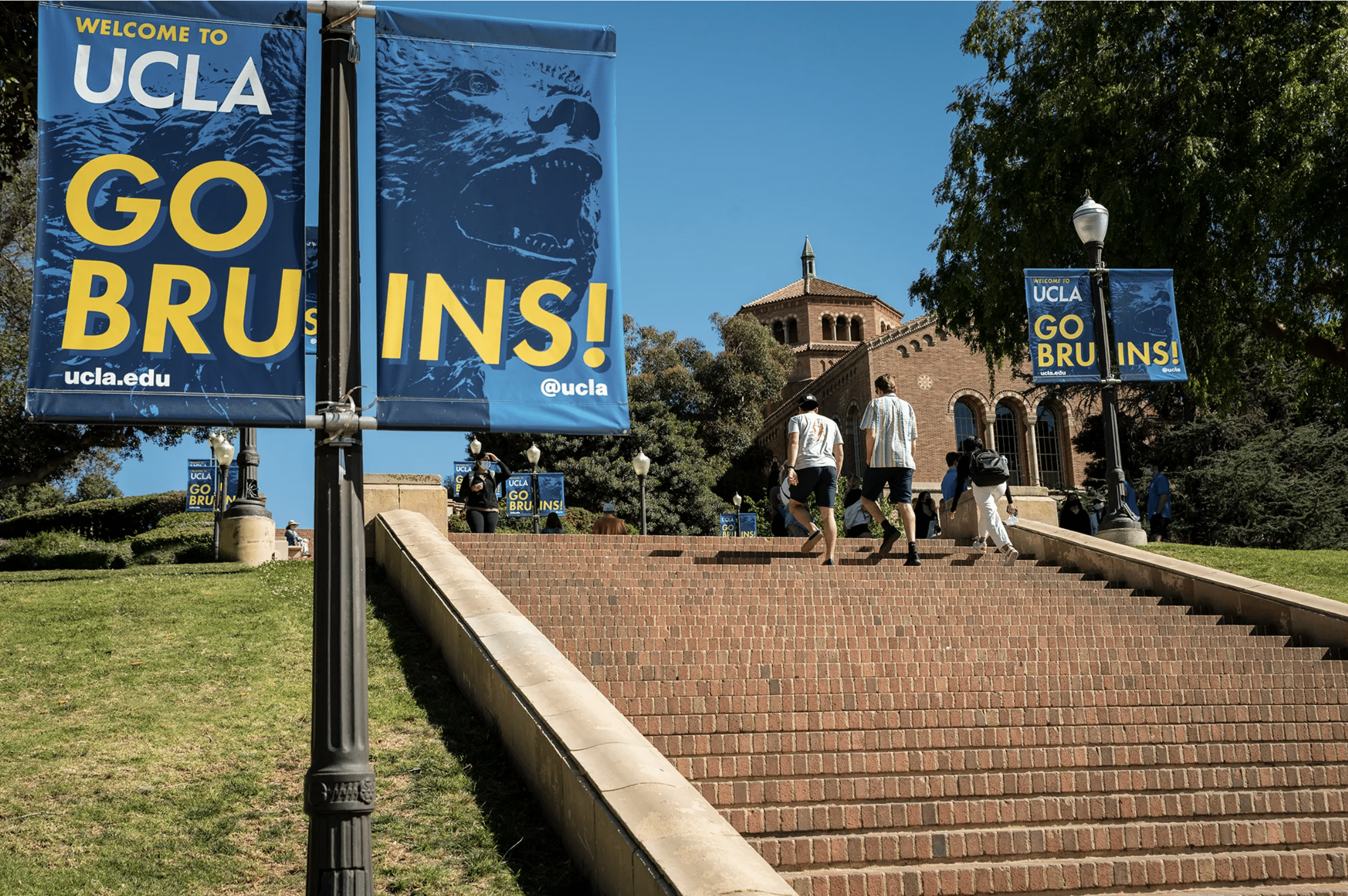The Class of 2024 Senior Intensive Projects
"A successful individual Senior Intensive is a graduation requirement, but more importantly, it is an opportunity to demonstrate your highest level of learning at TEA."
The arrival of Spring marks the time for our seniors to venture off on their Senior Intensives both near and far. As stated in the Senior Intensive Guide shared with students early in the year, “a successful individual Senior Intensive is a graduation requirement, but more importantly, it is an opportunity to demonstrate your highest level of learning at TEA. The Individual Senior Intensive is about learning through your interests and building your skills as an independent learner. It’s about choosing a field and defining a problem, concern, or idea that is of importance to you, becoming a budding expert in your chosen field, conducting relevant service-learning, and creating solution-driven final ‘products.’ With guidance from teachers, mentors, and crew leaders, you will show your ability to identify problems, conduct research, meet and overcome adversity, organize time and resources, communicate well, and reflect on your efforts to tackle the problem you identified.”

Senior Intensives in progress this week include: examining environmental sustainability in startups – visiting the Bay Area for a tech and non-profit perspective; reviewing sustainability in the ski industry, with two of our students traveling to Mammoth and Los Angeles for different perspectives; investigating how music can impact mental health and community building; using an interdisciplinary perspective to explore systemic oppression in Texas and Washington, D.C., including in the prison system; spending time in Los Angeles looking at women’s safety on campus and investigating mental health in student athletes; exploring how dance can be utilized in the neurodivergent community, including students with Down Syndrome; and studying how art contributes to positive mental health, and why it should be required in schools. Below we offer a deeper look into each of the student’s projects.
Aiden Carpenter: What would be the long-term effects of prison reform?
Aiden’s Real-World Problem Statement:
For too long, the war on crime has been focused on restoring justice by herding any and all criminals into prisons supposedly to contemplate their actions. However, this method often does not restore justice to either the community that has been victimized or the perpetrator. Rather, this type of justice, retributive or punitive justice, condemns certain people from the start to criminal-hood. I am exploring this topic from three angles. First, mass incarceration. Why has the prison population exploded since the 80’s? In what way is this a race-based issue? Second, restorative justice programs in prison. Does sitting idly throughout one’s prison sentence really redeem them and prepare them to reenter society? What effect do trade skill classes and counseling have on convicts after they are released? And third, rehabilitation. How could the release process from prison be improved to stop the cycle of homelessness and poverty that comes out of simply being tossed out onto the streets?
Jack Menasco and Summer LaFleur: What does the future of learning and equity look like in the American education system and how can film be utilized to bring attention to an underexposed topic?
Summer and Jack are collaborating on their projects in a beautiful way. As Summer works to bring awareness to the future of learning and equity in the American education system, Jack is lending his expertise and project goals of using film to bring attention to under exposed topics. Here are their Real-World Problem Statements:
Summer: The systems in America are not often reformed even when the need for change is evident. We are too reluctant to solve the issues that come along with outdated documents and laws. We are going to work on solving this problem through film. My passion started with banned books, but it has evolved as I learn more about the reasons behind the bans. The education system in America was created to benefit only a fraction of its residents, deepening the disparities and prioritizing greed. Between censorship, limiting curriculum, institutional oppression, and underfunding, we have created a culture that does not value its students in a supportive and constructive way. What is wrong with the American education system? What does the future of learning look like? I hope to answer these questions and find solutions to the issues through interviews, studies, history, investigative journalism, and stories– using the Banned Book Bus as a catalyst and Jack’s film/documentary as a medium. This project will be focusing on three aspects of education: Book banning and censorship, Institutionalized oppression, policy, and history, and funding and food.
Jack: My problem is similar to Summer’s. The problem I’m trying to address -through film- are the disparities in our education system. It’s a shared issue which we are both working to tackle, bring to light, and further for the better. Through the medium of film I’m going to work to accomplish our goals and help enlighten the masses.
Summer and Jack have a GoFundMe page set up to request additional resources for their project. To learn more, CLICK HERE.
Kaya Marshall: How can college students develop awareness and behavioral habits to increase women's safety in possible times of risk?
Kaya’s Real-World Problem Statement:
All over the world we see patterns of women at college ages being more susceptible to risk of sexual violence. Many college students are not aware of habits they have that cause women to feel unsafe or be in unsafe situations. According to the national prevention of injury control, “Nearly 1 in 5 women (18.3%) and 1 in 71 men (1.4%) in the United States have been raped at some time in their lives, including completed forced penetration, attempted forced penetration, or alcohol/drug facilitated completed penetration.” Many colleges have their students go through a consent and safety course but these courses are often skipped through or outdated. Even the students that are aware of this information of “how to be safe,” once any sort of drugs or alcohol enters their system, these ideas and protocols are easily forgot about.
Lyle Stone: How should the ski industry - especially ski resorts - change to become more sustainable?
Lyle’s Real-World Problem Statement:
Climate change is affecting all 8 billion of us on this planet. Temperatures are getting warmer, weather more unpredictable, and all the while we are only consuming more – producing greenhouse gasses and razing ecosystems. Emissions due to our burning of fossil fuels are primarily responsible for anthropogenic climate change, which affects humanity and the natural world increasingly as we continue to not change our ways. The emissions, deforestation, pollution, and negative overall environmental impact that come with increased accessibility of snow sports all contribute to anthropogenic climate change both local to the resort’s area and worldwide.
Nico Bolen: How should art education be conducted to inspire positive personal development and shape positive personal identity?
Nico’s Real-World Problem Statement:
Developing positive self identity is extremely important in a child’s development. Without a sense of self confidence and understanding of respect and value for themselves and others, kids suffer from low self esteem resulting in poor life outcomes and poor treatment of others and the world. Art education can be a great way to develop these aspects of identity and needs to be conducted in a way that fosters these aspects of positive self identity. Art education is not regarded as important and typically gets excluded from school teachings or most students’ lives by the end of high school. Art can be a powerful tool for positive self identity, expression, and wellbeing and needs to be emphasized in schools because of its importance.
Sebastian Law: What impact does music have on one’s mental health and how can it be used to build community?
Sebastian’s Real-World Problem Statement:
The prevalent issue of mental health struggles in American society, affecting both youth and adults, has far-reaching consequences on individual lives and societal well-being. This challenge has spurred early research into the potential therapeutic role of music in alleviating symptoms associated with depression and anxiety. Recognizing the profound impact of mental health on personal, academic, and professional aspects of life, understanding how music can contribute to support systems becomes crucial. Investigating the intersection of music and mental health offers a promising avenue for developing accessible and effective interventions that can positively influence the well-being of a wide-ranging demographic facing these challenges.
Tailor Knight: What causes collegiate athletes to struggle with their mental health, and how can these athletes be supported?
Tailor’s Real-World Problem Statement:
Collegiate athletes’ mental health is often overlooked, and support for these athletes is slowly improving, but this issue needs to be addressed now.
It has been shown that collegiate athletes struggle with their mental health, and they feel that they are fighting a battle alone. They go from high school to college in a quick transition, and their schedule becomes insanely busy. The transition from high school to college is hard enough as is but becomes even harder when you have athletic responsibilities on top of it. A few collegiate athletes have spoken out about their challenges, creating more awareness. The battle to help college athletes with their mental health has just begun, and there is a long road ahead.
Tilly Ekers: What impact does dance have on students with down syndrome’s mental and physical health?
Tilly’s Real-World Problem Statement:
Dance can have positive impacts on your mental health, so how can it help students with learning disabilities and humans in general find joy?
Having a learning disability and/or a problem is not easy. Many people struggle every day with depression, anxiety, spacial awareness, dyslexia, ADHD and many other conditions. Can dance be a way to escape that reality and strengthen your brain?
Being able to have access to a outlet can be extremely beneficial on your mental strength so how can we spread the knowledge on the effects of dance on your mental health especially when having a learning disability? It is proven that dance has positive effects on not only your mental health but also your physical health
Zade Mackie-Alssaqaf: How can startups who are not yet financially stable still be environmentally conscious?
Zade’s Real-World Problem Statement
We see it every day and with the non stop production of new innovative products it seems like we are unable to turn around the trajectory of our impending doom. This year for my senior intensive I hope to go straight to the source talking with not only sustainability startups but startups in the for profit sector as well. This is an especially pressing problem due to the fact that although I believe that no matter what we do as a species we will net more bad than good year after year. We have sped up our demise by such a high amount. According to Ecotricity “the expected rate of species extinction is usually around 5 species a year, we’re currently losing up to 10,000 times the normal rate – this means that dozens of species go extinct every single day.” this statistic is not only concerning for our own species but also for the environment we are all so dependent on.

